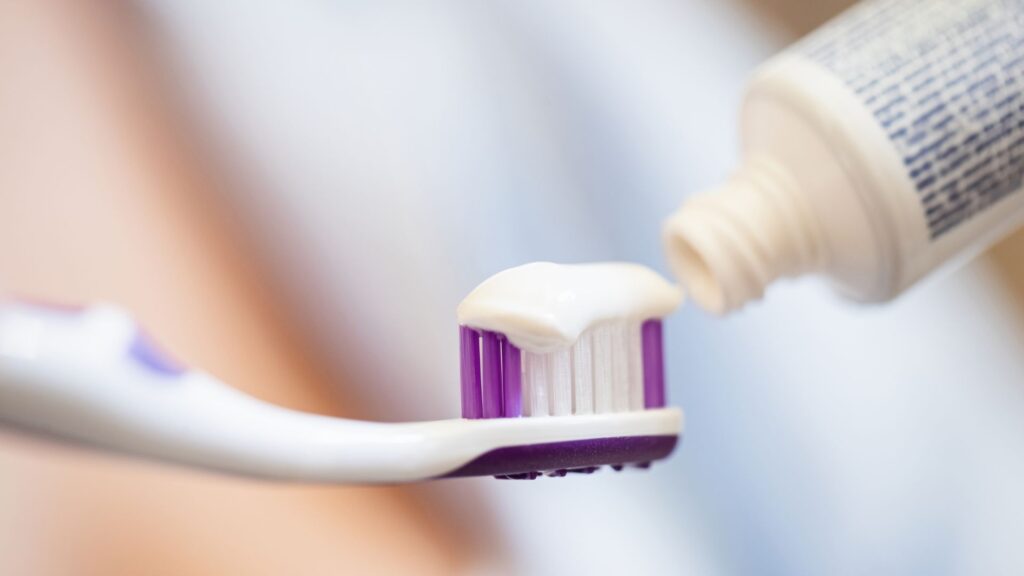Is Sensitive Toothpaste Right for You?

For those experiencing the sudden zing of sensitivity with every sip of hot tea or bite of an ice cream, the quest for the right sensitive toothpaste can feel like a journey fraught with trial and error. In the vast sea of dental care products, sensitive toothpaste stands out as a beacon of relief for sore teeth. Painstakingly formulated to address the discomfort associated with sensitive teeth, these toothpastes are not just an optional luxury but a daily necessity for many.
With brands like Sensodyne at the forefront, the sensitive toothpaste market offers a variety of options tailored to different needs, including sensitive toothpaste for gums and sensitive whitening toothpaste, to help restore not only comfort but also the confidence in your smile.
This article delves into what sets sensitive toothpaste apart, detailing how it works to alleviate pain and the key ingredients that make it effective. We’ll explore the different types of sensitive toothpaste available, including those without fluoride, whitening formulas, and products specifically designed for sensitive gums. User reviews and expert recommendations will guide you through selecting the best sensitive toothpaste for your needs, whether it’s Sensodyne sensitive toothpaste or a product focused on sensitive teeth whitening. By understanding the nuances of sensitive toothpaste ingredients and the experiences of others, you can make an informed choice and take a significant step towards alleviating dental sensitivity.
What Makes a Toothpaste Sensitive?

Active Ingredients
Sensitive toothpaste often contains specific active ingredients designed to alleviate pain associated with dentin hypersensitivity. Key components such as potassium nitrate and stannous fluoride are commonly used. Potassium nitrate works by desensitizing the nerves inside the teeth, providing relief from pain triggers like cold drinks or hot foods. Stannous fluoride, on the other hand, creates a protective barrier over the exposed dentin, shielding it from sensitivity triggers. Additionally, ingredients like arginine and calcium carbonate are included for their ability to block the tiny tubules in the dentin.
Formulation Properties
The effectiveness of sensitive toothpaste also depends on its formulation properties. The particle size of the desensitizing agents is crucial; they must be small enough to penetrate the enamel and reach the dentin but large enough to effectively clog the tubules and prevent sensitivity. Moreover, the combination of these particles with fluoride forms a robust layer that not only blocks the pathways to the nerves but also strengthens the tooth enamel, enhancing overall dental health.
Different Types of Sensitive Toothpaste

Sensitive toothpaste varieties cater to specific dental needs, enhancing both dental health and user comfort. Here’s a breakdown of options tailored for gum health, whitening effects, and enamel protection, ensuring you can choose the best product for your sensitivity concerns.
For Gum Health
Sensitive toothpastes such as Sensodyne Sensitivity & Gum Whitening are designed to alleviate discomfort while improving gum health. These products typically contain stannous fluoride, which not only helps relieve sensitivity by forming a protective barrier over exposed dentin but also targets and reduces plaque buildup along the gumline. Regular use of these toothpastes can significantly enhance gum health and reduce sensitivity.
With Whitening Effect
For those looking to brighten their smile without exacerbating tooth sensitivity, options like Sensodyne True White are ideal. These toothpastes are formulated to be less abrasive than regular whitening toothpastes, gently removing stains without irritating sensitive teeth. They combine the benefits of sensitivity relief with effective whitening agents, providing a dual action that restores natural whiteness while protecting against pain triggers.
For Enamel Protection
Toothpastes specifically formulated for enamel protection are crucial for those with sensitive teeth. Products like Colgate Sensitive Pro-Relief enrich the enamel with fluoride, which helps strengthen weakened areas and prevent decay. These toothpastes not only shield the nerves from painful stimuli but also help to rebuild the enamel, offering a long-term solution to sensitivity.
By understanding the specific benefits of each type of sensitive toothpaste, you can make an informed decision that aligns with your dental health goals and sensitivity needs. Whether your focus is on gum health, whitening, or enamel protection, there’s a sensitive toothpaste that fits your requirements.
User Reviews and Experiences

Testimonials from Users
Many users have expressed satisfaction with their chosen sensitive toothpaste, noting significant improvements in dental sensitivity. One user stated, “I’ve been using Sensodyne Repair & Protect toothpaste for about a month now, and I’m really happy with the results. I have sensitive teeth, and I used to get a lot of pain when I ate cold or hot foods. But since I started using this toothpaste, my sensitivity has decreased significantly”.
Another shared, “After trying it for the first time, I was amazed at the effectiveness. After brushing my teeth, I felt no sensitivity on having a cold drink. My sore gums felt soothed and calmed. Really impressed!”. These testimonials highlight the personal relief and satisfaction experienced by users, reinforcing the product’s effectiveness in managing tooth sensitivity.
Expert Opinions
As a dental consultant, it’s essential to consider expert recommendations alongside user testimonials. Experts often recommend toothpastes like Sensodyne for their proven effectiveness in treating sensitivity. For instance, a senior commerce editor noted, “Sensodyne is the most recommended toothpaste for sensitive teeth by dentists—it works, and it’s vetted by experts”. This endorsement is supported by the active ingredients such as potassium nitrate and stannous fluoride, which are known for their desensitizing properties. Additionally, experts appreciate formulations that cater to various needs, from gum health to enamel protection, offering a comprehensive approach to sensitivity relief.
However, considering alternative options can also be beneficial for overall oral health. One such alternative involves using toothpaste that incorporates natural enzymes.
Enzyme-based toothpastes offer a gentle yet effective cleaning solution, utilising natural enzymes to break down food particles and reduce plaque buildup. This approach helps maintain a clean and healthy oral environment without the use of harsh abrasives, which can be particularly advantageous for individuals with sensitive teeth. The gentle nature of enzyme-based formulations ensures that they are less likely to irritate sensitive teeth and gums.
Moreover, natural enzymes possess anti-inflammatory properties that can support gum health and promote healing. This can be especially useful for those who experience sensitivity due to gum recession or other gum issues. By incorporating an enzyme-based toothpaste into your daily oral hygiene routine, you can help manage tooth sensitivity while also enhancing overall gum health.
For those seeking a mild yet effective alternative to traditional sensitive toothpaste, exploring enzyme-based products can be a prudent choice. These innovative toothpastes can complement your current dental care practices, providing additional benefits for both tooth sensitivity and general oral health.
Conclusion
Reflecting on the user testimonials and expert opinions, it becomes evident that achieving relief from sensitive teeth is not only possible but also highly individual. The effectiveness of sensitive toothpaste, as lauded by those who have experienced significant improvements, reaffirms the essential role of informed choice in dental health. Moving forward, individuals should not only continue to seek out the best sensitive toothpaste tailored to their needs but also consider professional advice in navigating their choices. The broad implications of this discussion extend beyond immediate relief, pointing towards a more informed and health-focused approach to selecting dental care products, ensuring the sustainment of both dental health and overall wellbeing.


